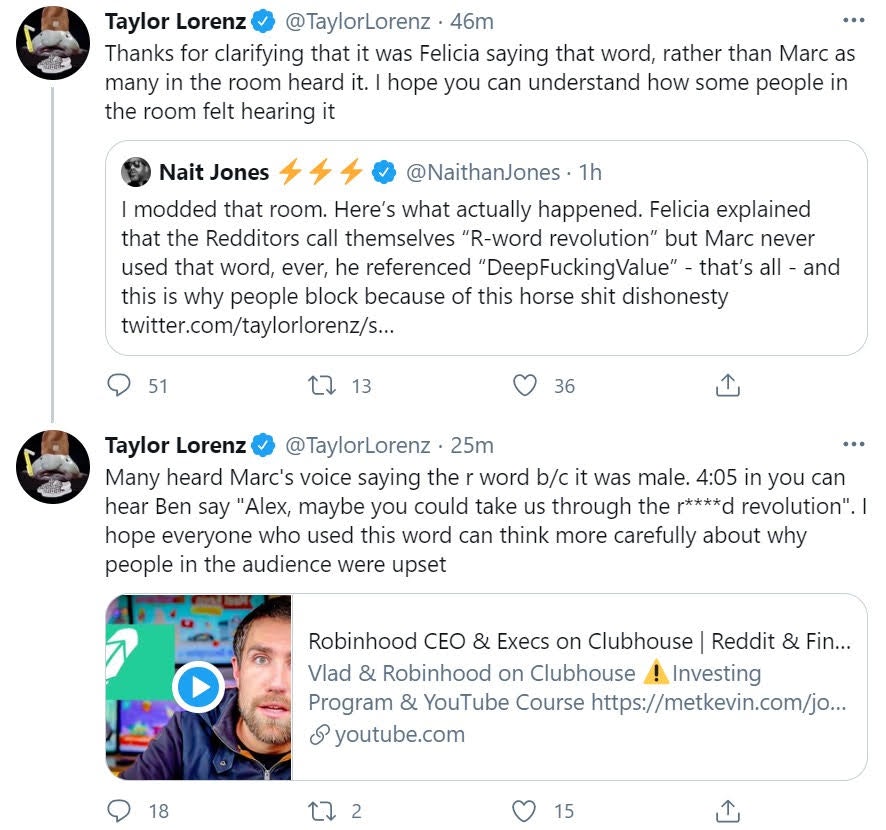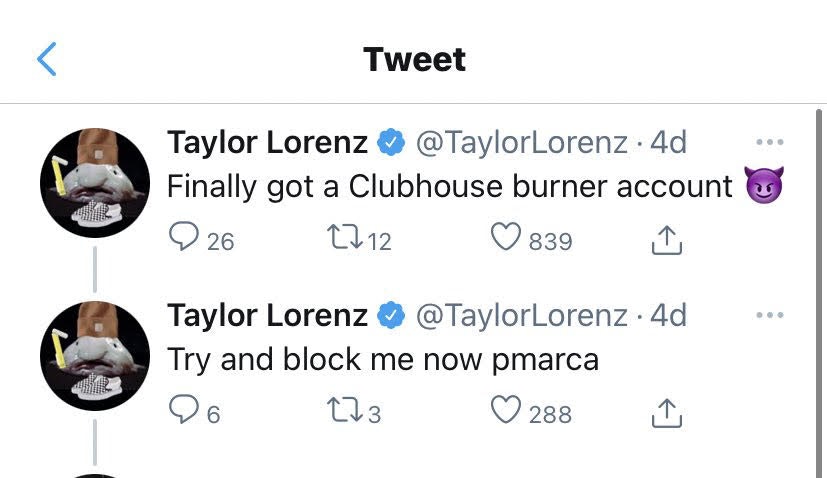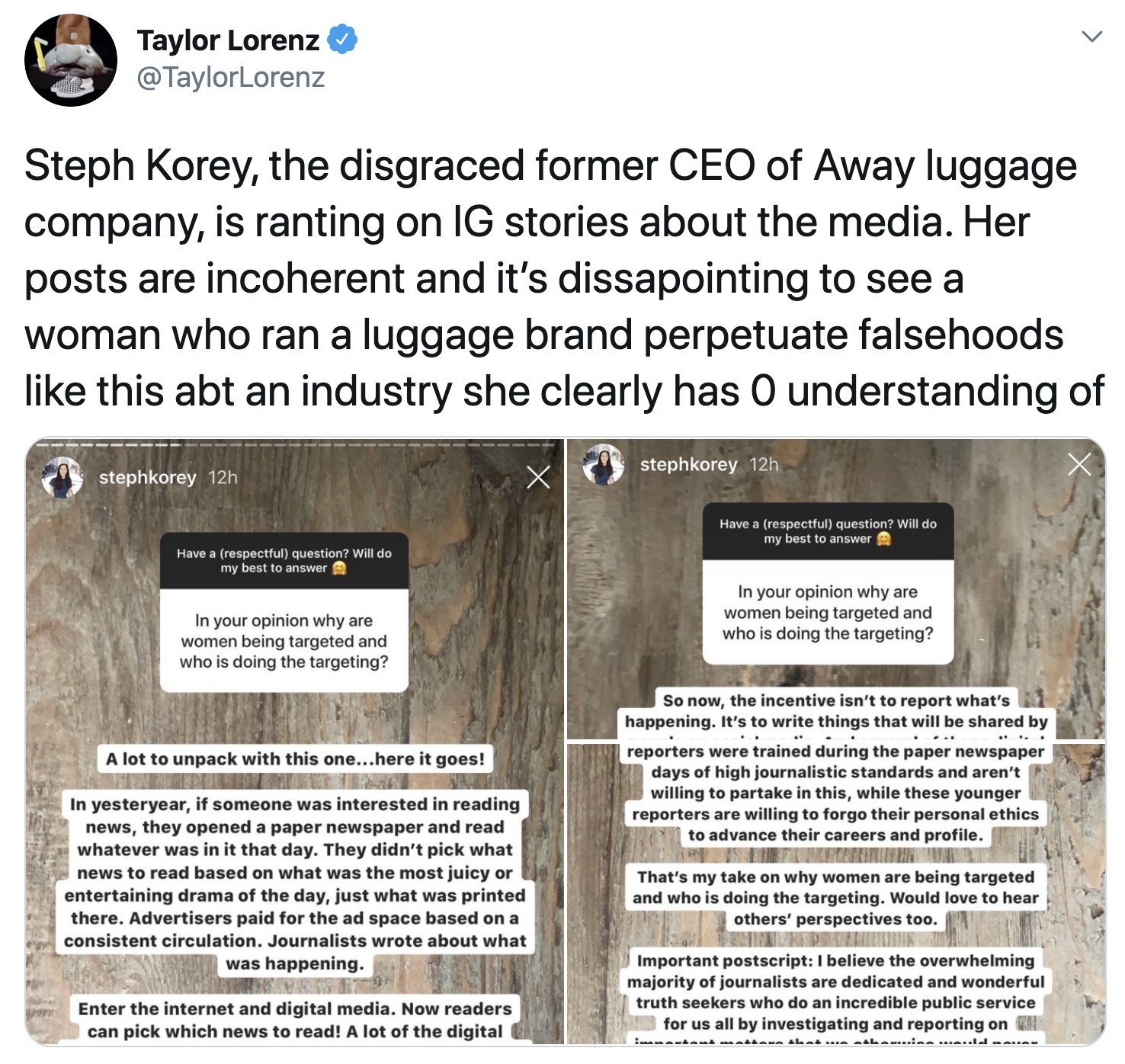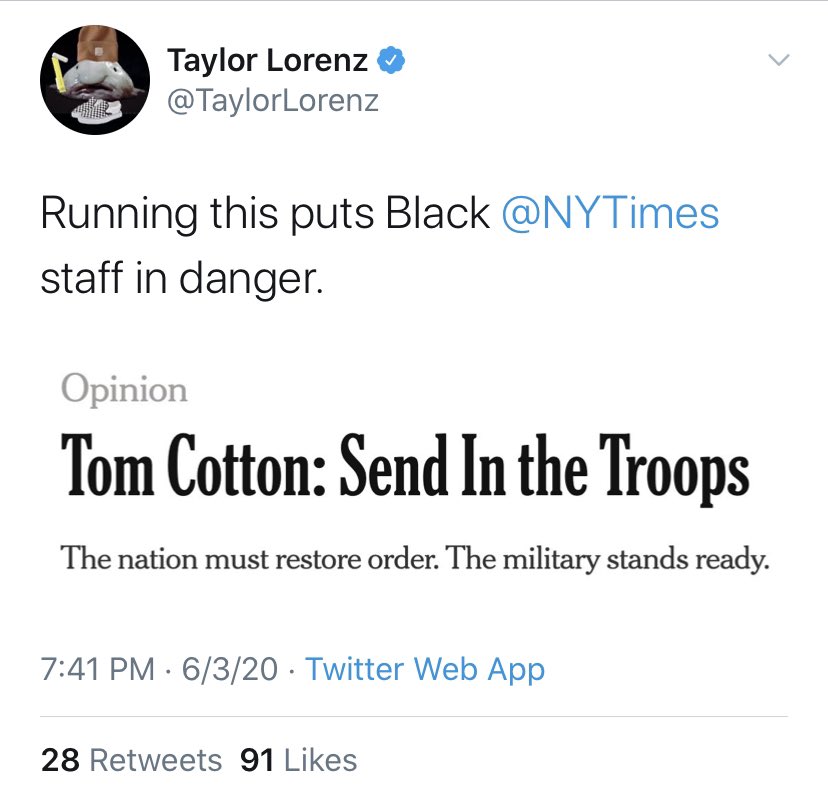New York Times TikTok reporter Taylor Lorenz has veered from her usual reporting on the activities of online teenagers to the activities of Silicon Valley tech bros in the hopes of catching them in the act of something problematic, but her latest self-own suggests she should stick to her TikTok beat instead.
In her eagerness to slander venture capitalist Marc Andreessen on Saturday night, Lorenz fired off a tweet falsely claiming he said the word “retarded” in an online audio chatroom on the social media app Clubhouse, which Andreessen is himself an investor in.
this is a lie. the tweet needs to be deleted, formally retracted, and the new york times needs to prohibit this reporter from covering clubhouse. pic.twitter.com/oo42W1p7X0
— Mike Solana (@micsolana) February 7, 2021
A moderator of the chat and several others pointed out Andreessen never used the reported slur.

Instead of issuing a correction or an apology for the inaccurate “reporting” fired off to her 210,000 followers, Lorenz doubled down with an insufficient excuse for the slander, deleted the tweets, then took her Twitter account private. Her clarifying tweets also condescendingly shamed everyone to “think more carefully” about using the “r-word” without explaining any context of how the word was actually used.
For months, Lorenz has obsessed over Andreessen and conversations on Clubhouse. Last fall, Lorenz alleged that several men on the platform were perpetrating malicious sexual behavior on the app, tweeting that it was “rife with sexism and misogyny.” She quickly blocked other Clubhouse users who challenged her allegations.
On Feb. 2, she bragged on Twitter about circumventing the app’s feature blocking journalists from chatrooms by establishing a burner account.

As journalist Glenn Greenwald pointed out, Lorenz is acting as an online hall monitor, deputized by the New York Times, to tattle on and ultimately silence those who they dislike. “Journalists are not the defenders of free speech values but the primary crusaders to destroy them,” Greenwald wrote.
Greenwald called out CNN’s Brian Stelter and Oliver Darcy for similar behavior, but it is Lorenz who has dominated the “citizen surveillance beat” for years.
In 2018 at the Daily Beast, Lorenz doxed Instagram-famous teenagers for the crime of having parents with conservative political beliefs. The Daily Beast proudly announced it was Lorenz’s reporting that got the teen’s show on Oath canceled.
This decision comes after @TaylorLorenz's exclusive report on the Instagram-famous Oshry sisters https://t.co/qcuUATWcDV
— The Daily Beast (@thedailybeast) March 1, 2018
In 2020, Lorenz lashed out at female entrepreneur Steph Korey for her thoughts on the media. After making factual errors and mischaracterizing Korey’s statements, Lorenz played the victim of those calling her out.

When the Times published an op-ed by Sen. Tom Cotton last summer, titled “Send in the Troops,” Lorenz was one of the outspoken Times employees calling the opinion page’s decision one that put black staff “in danger.”

Time and again, Lorenz shows to be on the side of canceling or shutting down anyone or any speech she dislikes or finds “dangerous.” She even admitted as much in an interview with Katie Herzog on cancel culture in 2019.
“I think the way people use ‘cancel culture’ is this shorthand way of dismissing whatever accusations are against them,” Lorenz told Herzog. “My general take on it is that it’s very toxic but also necessary. We are in the correction phase right now and everyone is indiscriminately calling each other out, and that’s because we’re working to set new standards and norms as a society.”
The “correction phase” is a phrase that comes out of the mouth of a communist dictator or a Gestapo officer, not an American journalist. Lorenz is not committed to the First Amendment or free speech of any kind. Instead, she spends her time trolling social media and online chat rooms looking for fireable offenses, and when she can’t find them, she fabricates and falsely attributes instead.









